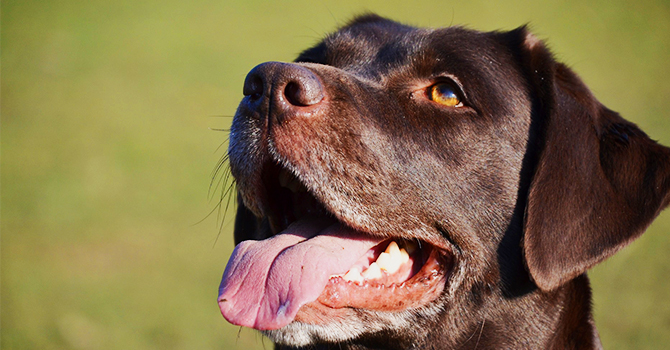Can Pets and Pregnancy Go Together?

Mingzhou Fu
Master’s Student in Epidemiology and Health Informatics
If you have a pet, you probably consider it part of the family. But some expecting mothers think about sending their pets away because they worry about certain diseases. Is it wise to take time away from your pet during pregnancy?
The short answer is no. As long as it is properly handled, keeping a pet has little effect on your ability to give birth to a healthy baby.
If properly handled, pets have little effect on giving birth to a healthy baby.
Can Your Pet Infect You?
Pets do create a threat of zoonoses, the infectious diseases that spread between humans and animals. Common pathogens include viruses, bacteria, fungi, and parasites.1
Cats and Parasites. Parasites can cause an infectious disease called Toxoplasmosis. Nearly any mammal or bird could be infected with parasites. The main route of transmission is through the digestive tract, such as eating meat that is not fully cooked and eating without washing hands after touching the animal’s droppings.2
Most human parasitic infections show only mild symptoms or none at all. However, miscarriage, stillbirth, or multiple fetal malformations can happen if the mother gets infected in the first three months of pregnancy. Severe damage in the fetus’s brain, eyes, and other systems may also occur if an infection occurs during the second trimester.3
Dogs and Rabies. Rabies is a viral infection caused by the rabies virus, which invades the central nervous system. Domestic dogs are the most common carrier of the virus.4 Fortunately, with the widespread use of rabies vaccines and the regulation of pets, the incidence of rabies in most areas is declining year by year.
In addition to infectious diseases, pets can also cause allergies and scratches.
What about Allergies and Scratches?
In addition to infectious diseases, pets can also cause allergies and scratches.
Many pets shed hair and dander during the spring and summer, which can be contaminated with allergens secreted by the animals. An allergic reaction may occur when the person has contact with these materials. At present, there is no evidence to show that pet allergens will directly affect the fetus. But people should worry about whether their pet will cause allergic reactions in pregnant women.
The clothes people tend to wear at home are relatively thin and are easily caught by a pet’s claws and teeth. Although being cut by a healthy pet does not spread diseases, the wound can get infected by bacteria.
While I have described a variety of sources of infection, the means of prevention are very similar.
What Should You Do to Prepare?
The best way to avoid infection is a pre-pregnancy checkup. A TORCH examination—for toxoplasmosis, other (HIV, hepatitis viruses, varicella, parvovirus), rubella, herpes simplex, and syphilis—is a good place to start.
If the TORCH test shows a past infection with any of these, then the mother has already produced antibodies—and there is no need to worry. If no antibody is detected, which means no immunity, then it is necessary to pay special attention throughout the pregnancy.
During pregnancy, women should pay attention to their hygiene and keep a certain distance from pets to avoid getting infected.
Allergy tests can be done in hospitals. Women who want to be mothers can do skin tests or antibody tests for cat and dog allergens. They can then decide whether to reduce contact with cats and dogs based on the results.
During pregnancy, women should pay attention to their own hygiene and keep a certain distance from pets to avoid getting infected. They should also wash their hands every time they touch a pet. They should also avoid feeding the pets and touching the pet’s feces.
Healthy Pets, Healthy Life
It is also important to ensure the health and well-being of pets. General principles include:
- Wash the pet frequently and pay attention to cleaning its toenails and ears
- Regularly vaccinate pets
- Feed nutritious pet food to enhance the animal’s immune system
- Practice good hygiene of pet nests and tableware
- Eliminate pests that could spread diseases, such as fleas, cockroaches, and mosquitoes
- Do regular physical examinations of pets.
Follow the tips mentioned above and be well prepared for a new member of the family. Enjoy your pets as well as your pregnancy!
References
- World Health Organization. “Zoonoses.” Retrieved 14 November 2018, www.who.int/topics/zoonoses/en/
- Wong, S.Y. and J.S. Remington, Toxoplasmosis in pregnancy. Clin Infect Dis, 1994. 18(6): p. 853-61; quiz 862.
- Paquet, C., et al., Toxoplasmosis in pregnancy: prevention, screening, and treatment. J Obstet Gynaecol Can, 2013. 35(1): p. 78-81.
- WHO. “What Is Rabies?” Retrieved 14 November 2018, http://www.who.int/rabies/about/en/
ABOUT THE AUTHOR
 Mingzhou Fu is a second-year master’s student in a joint degree program of general
epidemiology and health informatics at the University of Michigan. She completed her
undergraduate education in clinical medicine at Shanghai Jiao Tong University in China.
She is currently working with Dr. Kelly Bakulski and Dr. Erin Ware on finding associations
between cumulative genetic risks, health behaviors, and cognitive impairment in the
US population. Her interests also include implementing data-driven approaches to improve
population wellness and patient care.
Mingzhou Fu is a second-year master’s student in a joint degree program of general
epidemiology and health informatics at the University of Michigan. She completed her
undergraduate education in clinical medicine at Shanghai Jiao Tong University in China.
She is currently working with Dr. Kelly Bakulski and Dr. Erin Ware on finding associations
between cumulative genetic risks, health behaviors, and cognitive impairment in the
US population. Her interests also include implementing data-driven approaches to improve
population wellness and patient care.
